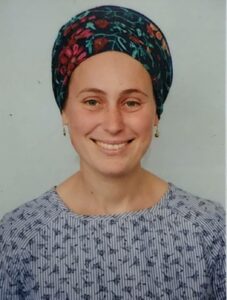Stern, G., Gadot, R., & Tsybulsky, D. (2025). Digital curation and generative artificial intelligence: New horizons in science education. Eureka, (46), 1-8. [In Hebrew]. https://www.matar.tau.ac.il/?page_id=23770
Category: News
Just published – Proceedings of SITE2025
Stern, G. & Tsybulsky, D. (2025). Digital Curation in Science Education: Exploring Novel Student-Centered Technology Applications for Personalized Learning Experiences. In R. Jake Cohen (Ed.). Proceedings of Society for Information Technology & Teacher Education International Conference (pp. 2557-2564). Orlando, FL, USA: Association for the Advancement of Computing in Education (AACE). Retrieved July 19, 2025 from https://www.learntechlib.org/primary/p/225836/
Paper presentations – Annual International Conference on Innovation and Entrepreneurship in Education 2025
- Haj, R., Tsybulsky, D. From Curation to Engagement: Implementing a Digital Learning Pathway for Socio-Scientific Issues. Annual International Conference on Innovation and Entrepreneurship in Education 2025. Western Galilee College, Israel, June 2025. Oral presentation.
- Ben Simon. H., Yifrach. L. & Tsybulsky, D. Citizen Science as an innovative framework for fostering students’ understanding of the Nature of Science. Innovation and Entrepreneurship in Education Conference 2025. Western Galilee College Online conference, Acre, June 2025. Oral presentation. Annual International Conference on Innovation and Entrepreneurship in Education 2025. Western Galilee College, Israel, June 2025. Oral presentation.
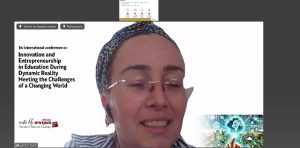
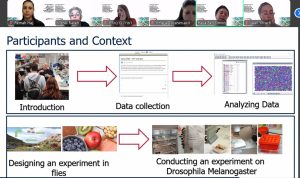
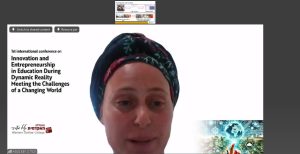
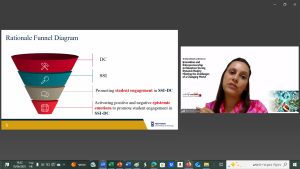
Congratulations to Anna Pshenichny-Mamo for winning the People’s Choice Award!
Congratulations to Anna Pshenichny-Mamo for winning the People’s Choice Award at Faculty Research Day for her outstanding poster presentation exploring the intersection of the Nature of Science and Social Justice in natural history museum exhibits!
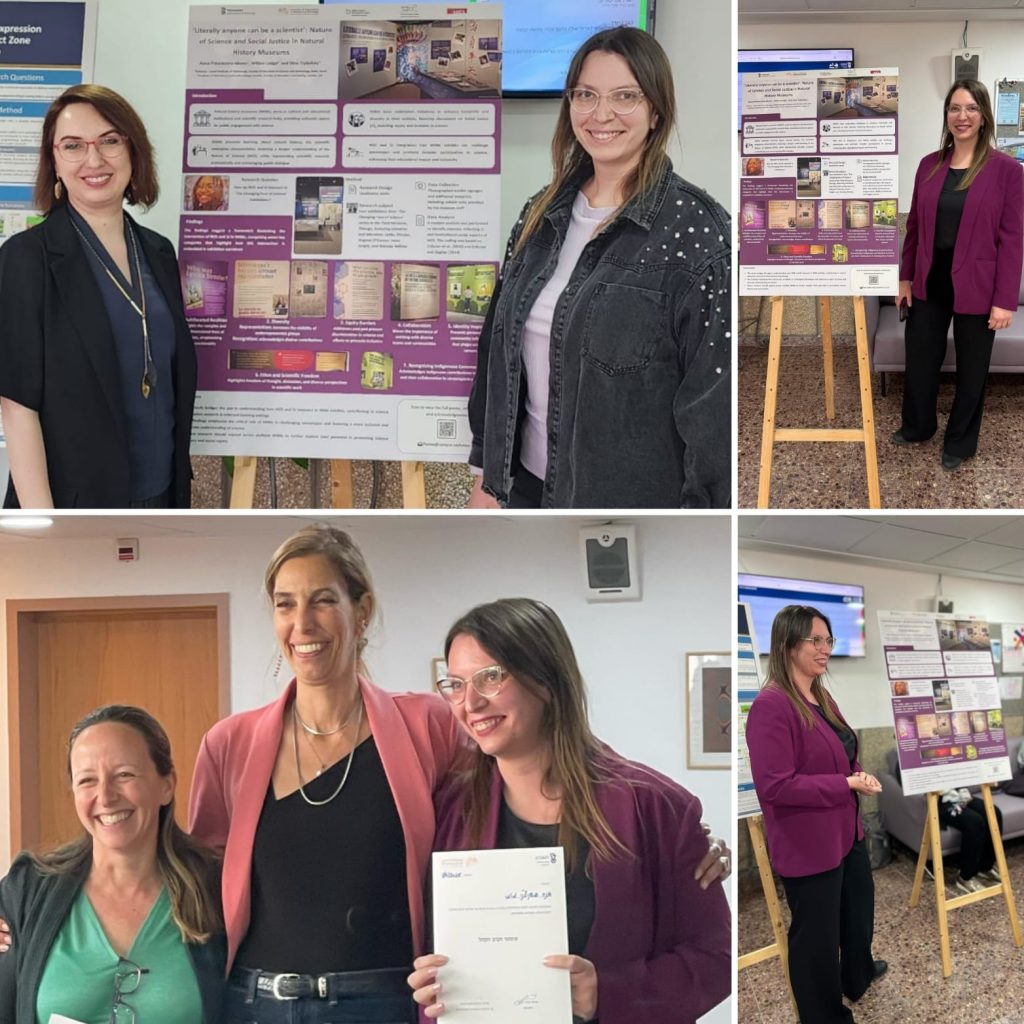
Just published – Science & Education
Dvir, M. & Tsybulsky, D. (2025). Facilitating the design and analysis of middle school students’ reasoning in the context of citizen science: A framework of the interrelations between statistical, scientific, and nature of science reasoning with data-based claims. Science and Education. https://doi.org/10.1007/s11191-025-00637-0
Congratulations to Remah Haj on her achievements!
Remah Haj was accepted to the ESERA Doctoral School 2025 (Almería, Spain)!
She was also selected to join “Bedarkech HaAkademit,” a prestigious academic career program for outstanding Arab women doctoral students, initiated by Afik in Academia – Israeli Women University Professors’ Forum.
In addition, Remah has recently been accepted to another prestigious program — “Tamkeen,” a selective initiative by Alrowad for Science and Technology. This unique program supports Arab students pursuing advanced degrees in science and technology, offering tools and workshops to enhance their personal and professional development.
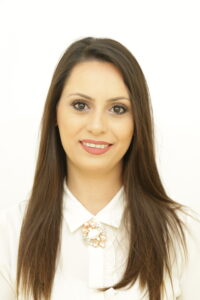
Paper presentation – SITE 2025
Stern, G. & Tsybulsky, D. Digital curation in science education: exploring novel student-centered technology applications for personalized learning experiences. SITE2025 conference. Orlando, USA, March 2025. Oral presentation. PPT.
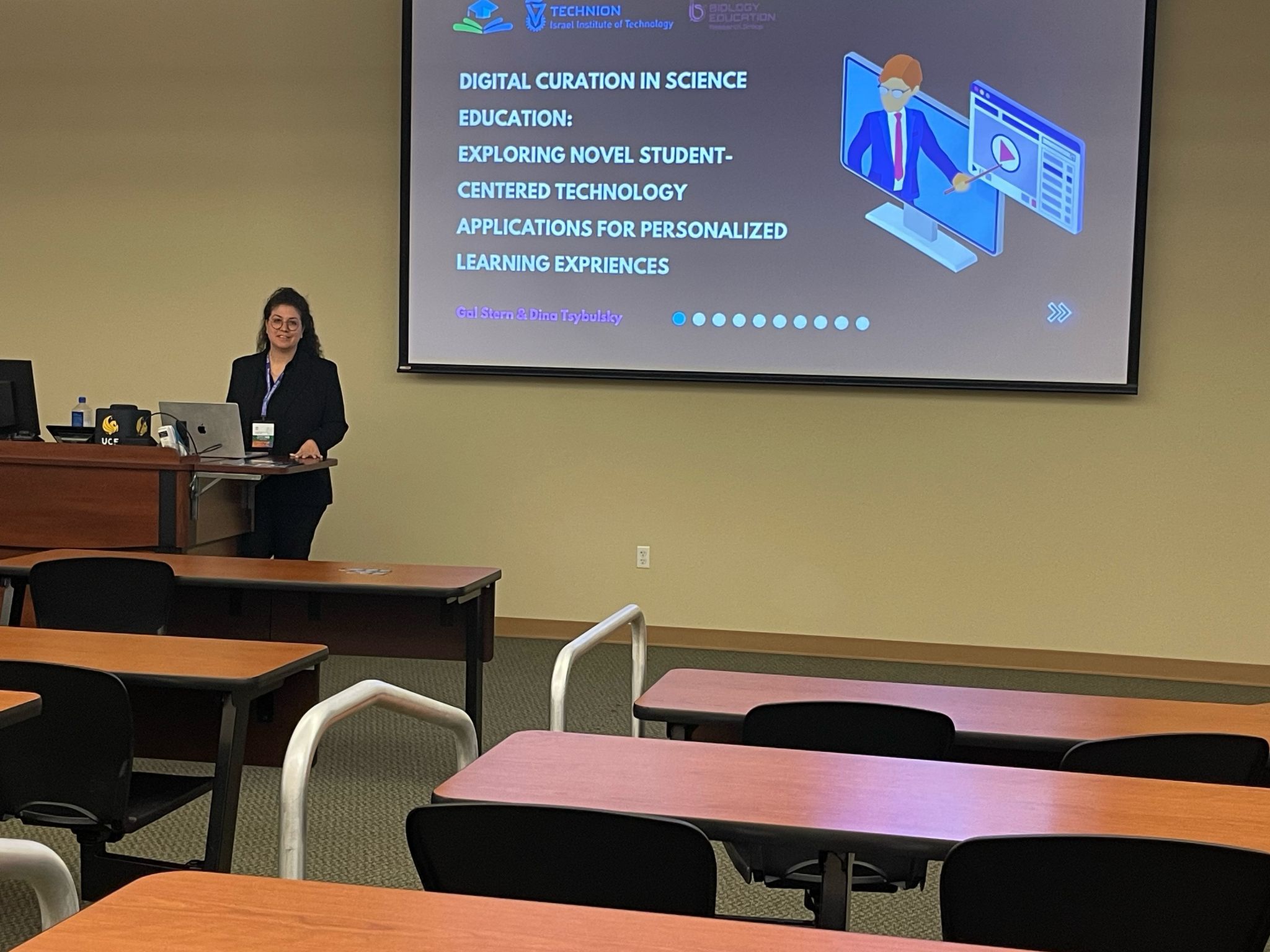
Symposium/papers/poster presentations – NARST 2025
- Dagan, K. & Tsybulsky, D. Enhancing scientific literacy in distance elementary education: A closeup on pre-service teacher beliefs and practices. National Harbor, Maryland, USA, March 2025. Oral presentation.
- Stern, G. & Tsybulsky, D. Curating the future: Integrating digital curation for personalized learning in science education. National Harbor, Maryland, USA, March 2025. Poster presentation.
- Pshenichny-Mamo, A., Lodge, W. & Tsybulsky, D. “Who Do You Imagine as Scientists?”: Intersecting NOS and social justice in natural history museums. NARST2025 conference. National Harbor, Maryland, USA, March 2025. Oral presentation.
- Ben-Simon, H. & Tsybulsky, D. Bridging the gap: How designed purposes facilitate authentic scientific purposes in citizen science project. NARST2025 conference. National Harbor, Maryland, USA, March 2025. Oral presentation.
- Tsybulsky, D., Pshenichny-Mamo, A. & Ben Simon, H. Nature of science in science curriculum and teacher education, a global perspective: Nature of science in Israel. NARST2025 conference. National Harbor, Maryland, USA, March 2025. Symposium.
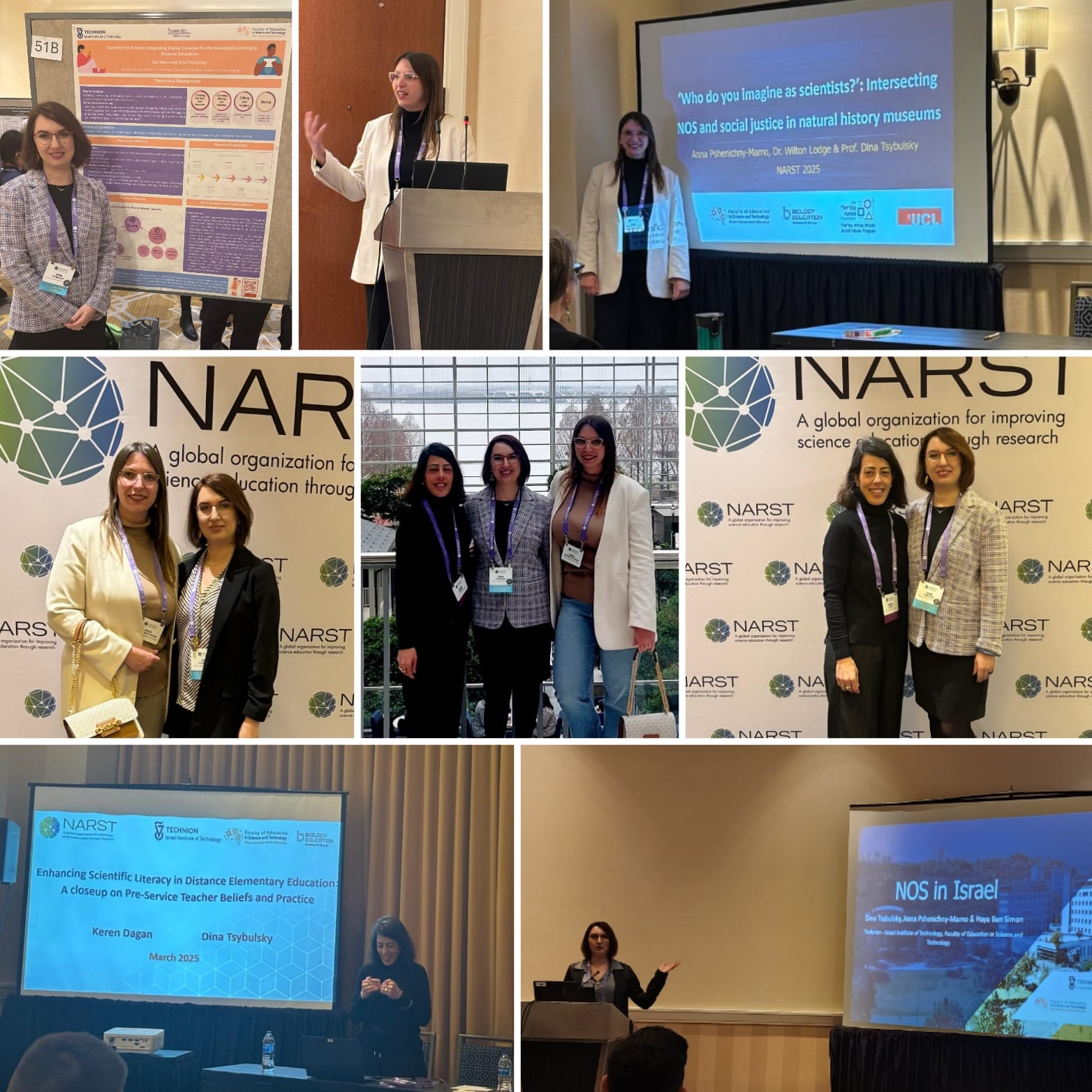
Paper presentation – Chais 2025 Annual Conference
Haj, R., Dayan, E. & Tsybulsky. (2025). Digital curation in science education: A new learning pathway to enhance student engagement with socio-scientific issues. Chais2025 Annual Conference Proceeding, pp. 37E- 40E, Raanana, Israel. PPT.
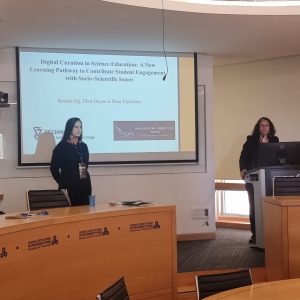
Congratulations to Haya Ben Simon on receiving the Miriam and Aaron Gutwirth Excellence Scholarship!
Congratulations to Haya Ben Simon on receiving the Miriam and Aaron Gutwirth Excellence Scholarship!
